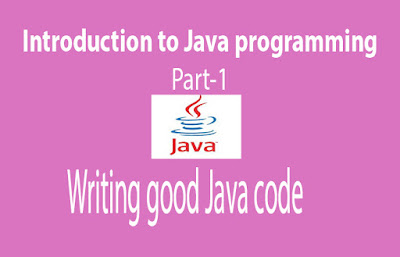Welcome Back to C++ (Modern C++) Part-1
C++ is a standout amongst the most broadly utilized programming dialects on the planet. Elegantly composed C++ projects are quick and proficient. The dialect is more adaptable than different dialects since you can utilize it to make an extensive variety of applications—from fun and energizing recreations, to superior logical programming, to gadget drivers, inserted projects, and Windows customer applications. For over 20 years, C++ has been utilized to take care of issues like these and numerous others. What you won't not know is that an expanding number of C++ software engineers have collapsed up the frump C-style programming of yesterday and have wore present day C++.
One of the first necessities for C++ was in reverse similarity with the C dialect. From that point forward, C++ has advanced through a few emphasess—C with Classes, then the first C++ dialect particular, and after that the numerous ensuing improvements. In light of this legacy, C++ is regularly alluded to as a multi-worldview programming dialect. In C++, you can do absolutely procedural C-style programming that includes crude pointers, clusters, invalid ended character strings, custom information structures, and different elements that may empower incredible execution however can likewise produce bugs and many-sided quality. Since C-style writing computer programs is laden with dangers like these, one of the establishing objectives for C++ was to make programs both sort protected and less demanding to compose, augment, and keep up. Right off the bat, C++ held onto programming ideal models, for example, question arranged programming. Throughout the years, highlights have been added to the dialect, together with exceedingly tried standard libraries of information structures and calculations. It's these increases that have made the advanced C++ style conceivable.
Present day C++ underlines:
- Stack-based degree rather than load or static worldwide extension.
- Auto sort deduction rather than unequivocal sort names.
- Savvy pointers rather than crude pointers.
- std::string and std::wstring sorts (see <string>) rather than crude char[] clusters.
- Standard layout library (STL) holders like vector, rundown, and guide rather than crude clusters or custom compartments. See <vector>, <list>, and <map>.
- STL calculations rather than physically coded ones.
- Special cases, to report and handle mistake conditions.
- Bolt free between string correspondence utilizing STL std::atomic<> (see <atomic>) rather than other between string correspondence instruments.
- Inline lambda works rather than little capacities executed independently.
- Extend based for circles to compose more powerful circles that work with clusters, STL compartments, and Windows Runtime accumulations in the frame for ( for-range-statement : expression ). This is a piece of the Core Language bolster. For more data, see Range-based for Statement (C++).












0 coment�rios:
Post a Comment